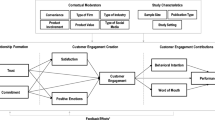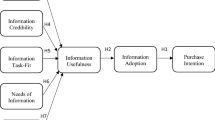Abstract
It has been suggested that the language of behavior analysis is not always consumer-friendly, but the very limited empirical support for this claim comes from examining jargon in English. We consulted publicly available data sets to shed light on one specific aspect of the jargon problem: how non-English speakers may react emotionally to the technical vocabulary of behavior analysis. Previous research has suggested that English speakers may experience English technical terms as unpleasant. Here, we show that the same may apply when speakers of other languages (Egyptian Arabic, French, German, Brazilian Portuguese, and Spanish) encounter translated technical terms. Our results, although constrained by the availability of data for only a small sample of relevant terms, suggest that responses of English speakers to English terms may be a good predictor of emotional responding to translated terms. To our knowledge, this is the first empirical study to address international ramifications of a so-called marketing problem in behavior analysis. Our main purpose is to call attention to the need for cross-language and cross-cultural studies on factors that affect public perceptions and acceptance of behavior analysis.




Similar content being viewed by others
Notes
Many of the studies have been conducted using electronic “crowdsourcing” tools for data collection such as Amazon mTurk, and some evidence suggests that samples obtained in this way better approximate the general population than do traditional, university-based participant pools (Paolacci & Chandler 2014).
Actually, the scale presented to raters ran from 1 = Happy to 9 = Unhappy, and ratings were then inverted (1 = Unhappy to 9 = Happy) for purposes of data presentation, presumably because of the intuitive sense that higher numbers should reflect better outcomes. Both types of scales have been used in previous word-emotion studies. In the present report, we discuss the Warriner and SG corpora in terms of inverted ratings.
Other team members were Tomás Jesús Carrasco Giménez, Maricel Cigales, Carrie Dempsey, Maria Xesús Froján Parga, Oscar García Leal, Esteve Frexa i Baque, Aníbal Gutiérrez, Rocío Hernández Pozo, Camilo Hurtado-Parrado, Sarah Lechago, Wilson López, Neil Martin, Fae Mellichamp, Jesús Ángel Miguel García, Rafael Moreno Rodríguez, Jose Navarro Guzmán, Celia Nogales González, Gabriel Schnerch, Luis Valero Aguayo, and Alejandra Zaragoza Scherman.
To identify behavior analysis terms, we used the BACB® Brazilian Portuguese glossary. A glossary created in Portugal also is available.
The Egyptian dialect is the most-spoken variety of Arabic.
A few studies, conducted in analog rather than treatment settings, show that when treatments are described in behavior analysis jargon nonexperts tend to view then as unacceptable (Becirevic et al., 2016; Witt et al., 1984) and implement them poorly (Rolider et al., 1998). To our knowledge, only one study (Jarmolowicz et al., 2008) has reported similar effects in a treatment milieu.
References
Ardila, R. (2006). Behavior analysis in an international context. In A. C. Brock (Ed.), Internationalizing the history of psychology (pp. 112–132). New York: New York University Press.
Avey, J., Avolio, B. J., & Luthans, F. (2011). Experimentally analyzing the impact of leader positivity on follower positivity and performance. The Leadership Quarterly, 22, 282–294. https://doi.org/10.1016/j.leaqua.2011.02.004.
Azzi, R., Rocha, E., Silva, M. I., Bori, C. M., Fix, D. S. R., & Keller, F. S. (1963). Suggested Portuguese translations of expression in operant conditioning. Journal of the Experimental Analysis of Behavior, 6, 91–94. https://doi.org/10.1901/jeab.1963.6-91.
Bailey, J. S. (1991). Marketing behavior analysis requires different talk. Journal of Applied Behavior Analysis, 24, 445–448. https://doi.org/10.1901/jaba.1991.24-445.
Becirevic, A., Critchfield, T. S., & Reed, D. D. (2016). On the social acceptability of behavior-analytic terms: crowdsourced comparisons of lay and technical language. The Behavior Analyst, 39, 305–317.
Critchfield, T. S., Becirevic, A., & Reed, D. D. (2016). In Skinner’s early footsteps: analyzing verbal behavior in large public corpora. The Psychological Record, 66, 639–647.
Critchfield, T. S., Becirevic, A., & Reed, D. D. (2017). On the social validity of behavior analytic communication: a call for research and description of one method. The Analysis of Verbal Behavior, 33, 1–33.
Critchfield, T. S., Doepke, K. J., Epting, L. K., Becirevic, A., Reed, D. D., Fienup, D. F., Kremsreiter, J. L., & Ecott, C. L. (2017). Normative emotional responses to behavior analysis jargon: how not to use words to win friends and influence people. Behavior Analysis in Practice, 10(2), 97–106.
Dodds, P. S., et al. (2015). Human language reveals a universal positivity bias. Proceedings of the National Academy of Science, 112, 2389–2394. https://doi.org/10.1073/pnas.1411678112.
Doughty, A. H., Holloway, C., Shields, M. C., & Kennedy, L. E. (2012). Marketing behavior analysis requires (really) different talk: a critique of Kohn (2005) and a(nother) call to arms. Behavior and Social Issues, 21, 115–134. https://doi.org/10.5210/bsi.v21i0.3914.
Floh, A., Koller, M., & Zauner, A. (2013). Taking a deeper look at online reviews: asymmetric effect of valence intensity on shopping behavior. Journal of Marketing Management, 29, 646–670. https://doi.org/10.1080/0267257x.2013.776620.
Fong, E. H., Catagnus, R. M., Brodhead, M. T., Quigley, S., & Field, S. (2016). Developing the cultural awareness skills of behavior analysts. Behavior Analysis in Practice, 9, 84–94.
Foxx, R. M. (1996). Translating the covenant: the behavior analyst as ambassador and translator. The Behavior Analyst, 19, 147–161.
Freedman, D. H. (2015). Improving the public perception of behavior analysis. The Behavior Analyst, 1–7. https://doi.org/10.1007/s40614-015-0045-2.
Jarmolowicz, J. P., Kahng, A., Invarsson, E. T., Goysovich, R., Heggemeyer, R., & Gregory, M. K. (2008). Effects of conversational versus technical language on treatment preference and integrity. Intellectual and Developmental Disabilities, 46, 190–199. https://doi.org/10.1352/2008.46:190-199.
Lindsley, O. R. (1991). From technical jargon to plain English for application. Journal of Applied Behavior Analysis, 24, 449–458. https://doi.org/10.1901/jaba.1991.24-449.
Paolacci, G., & Chandler, J. (2014). Inside the Turk: understanding Mechanical Turk as a participant pool. Current Directions in Psychological Science, 23, 184–188. https://doi.org/10.1177/0963721414531598.
Pereltsvaig, A. (2012). Languages of the world: an introduction. Cambridge: Cambridge University Press. https://doi.org/10.1017/cbo9781139026178.
Petty, R. E., Schumann, D. W., Richman, S. S., & Strathman, A. J. (1993). Positive mood and persuasion: different roles for affect under high- and low-elaboration conditions. Journal of Personality and Social Psychology, 64, 5–20. https://doi.org/10.1037/0022-3514.64.1.5.
Richelle, M. (1960). Suggested French translations of expressions in the field of operant conditioning. Journal of the Experimental Analysis of Behavior, 3, 167–170.
Rolider, A., & Axelrod, S. (2005). The effects of “behavior-speak” on public attitudes toward behavioral interventions. A cross-cultural argument for using conversational language to describe behavioral interventions. In W. L. Heward, T. E. Heron, N. A. Neef, S. M. Peterson, D. M. Sainto, G. Cartledge, R. Gardner III, L. D. Peterson, S. B. Hersh, & J. C. Dardig (Eds.), Focus on behavior analysis in education (pp. 283–293). Upper Saddle River: Pearson/Merrill Prentice Hall.
Rolider, A., Axelrod, S., & Van Houten, R. (1998). Don’t speak behaviorism to me: How to clearly and effectively communicate behavioral interventions to the general public. Child & Family Behavior Therapy, 20, 39–56. https://doi.org/10.1300/j019v20n02_03.
Schaeffer, H. H. (1960). Suggested German translations of expressions in the field of operant conditioning. Journal of the Experimental Analysis of Behavior, 3, 171–182. https://doi.org/10.1901/jeab.1960.3-171.
Skinner, B. F. (1953). Science and human behavior. New York: Macmillan.
Stadthagen-Gonzalez, H., Imbault, C., Perez Sanchez, M.A., & Brysbaert, M. (2016). Norms of valence and arousal for 14,031 Spanish words. Behavior Research Methods. Advance online publication. doi: https://doi.org/10.3758/s13428-015-0700-2
Warriner, A. B., & Kuperman, V. (2015). Affective biases in English are bi-dimensional. Cognition and Emotion, 29, 1147–1167. https://doi.org/10.1080/02699931.2014.968098.
Warriner, A. B., Kuperman, V., & Brysbaert, M. (2013). Norms of valence, arousal, and dominance for 13,915 English lemmas. Behavior Research Methods, 45, 1–17. https://doi.org/10.3758/s13428-012-0314-x.
Witt, J. C., Moe, G., Gutkin, T. B., & Andrews, L. (1984). The effect of saying the same thing in different ways: the problem of language and jargon in school-based consultation. Journal of School Psychology, 22, 361–367. https://doi.org/10.1016/0022-4405(84)90023-2.
Author information
Authors and Affiliations
Corresponding author
Ethics declarations
Ethical Approval
This article does not contain any studies with human participants or animals performed by any of the authors and therefore is not subject to Institutional Review Board oversight.
Conflict of Interest
The authors declare that they have no conflict of interest.
Rights and permissions
About this article
Cite this article
Critchfield, T.S., Doepke, K.J. Emotional Overtones of Behavior Analysis Terms in English and Five Other Languages. Behav Analysis Practice 11, 97–105 (2018). https://doi.org/10.1007/s40617-018-0222-3
Published:
Issue Date:
DOI: https://doi.org/10.1007/s40617-018-0222-3




